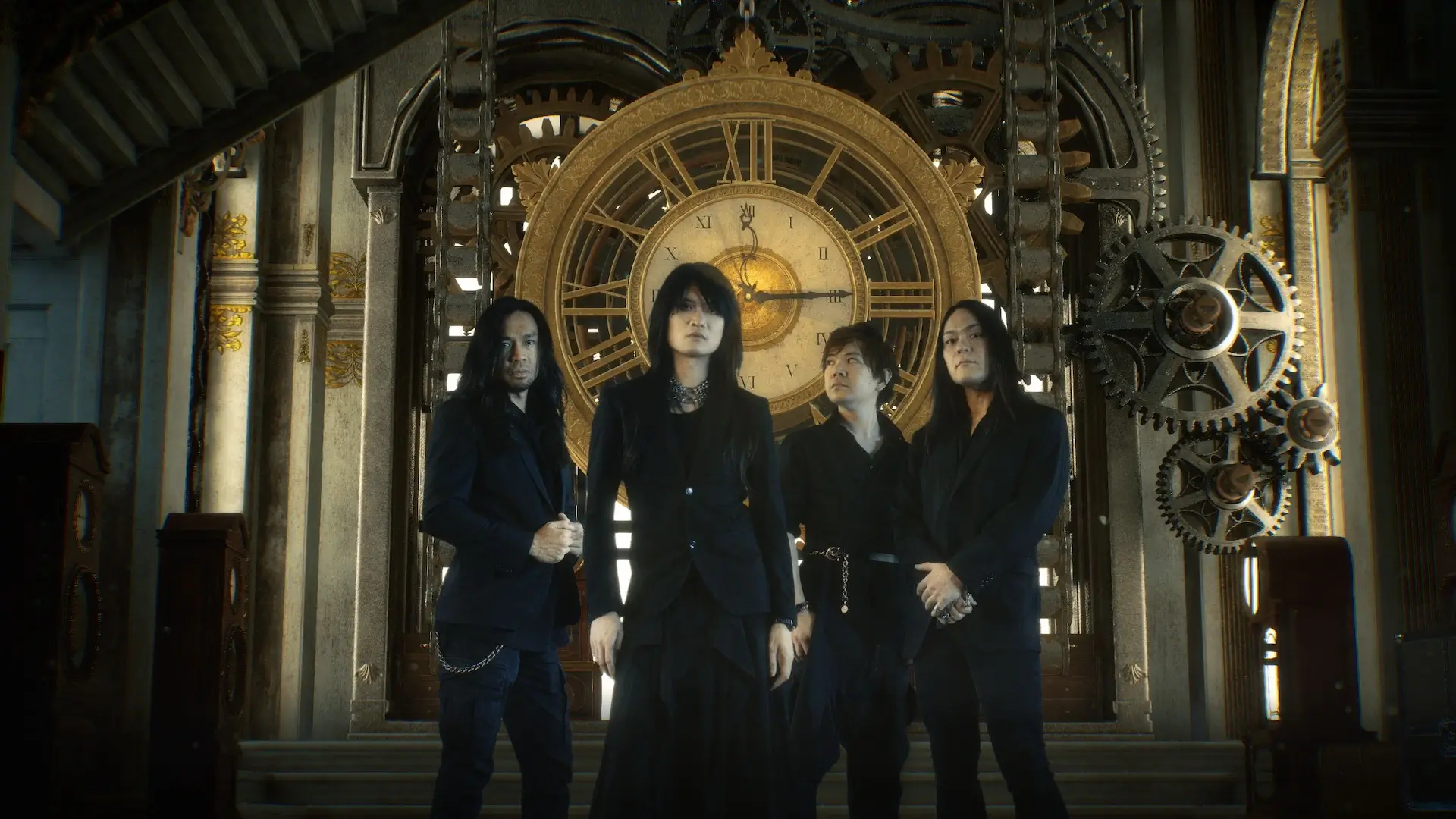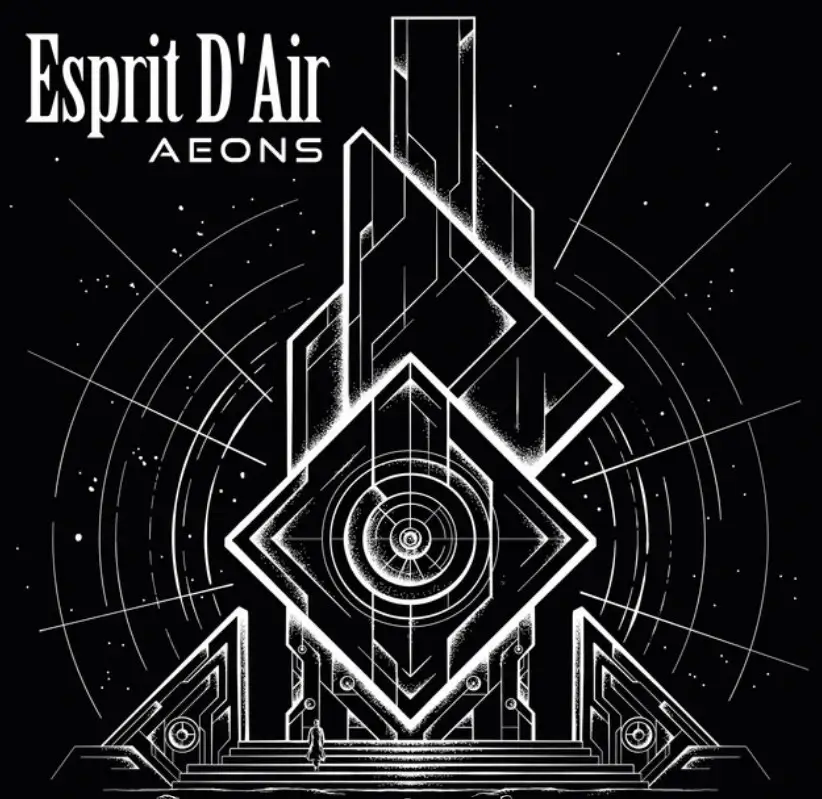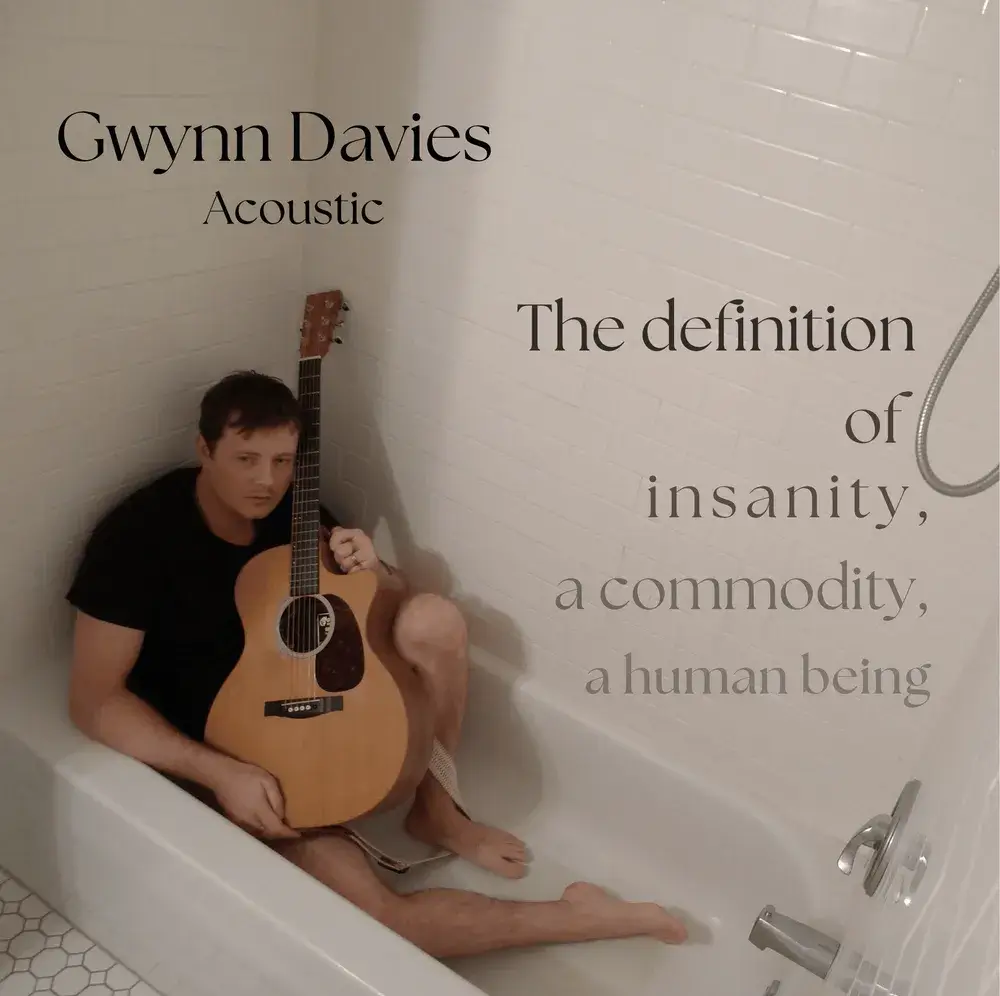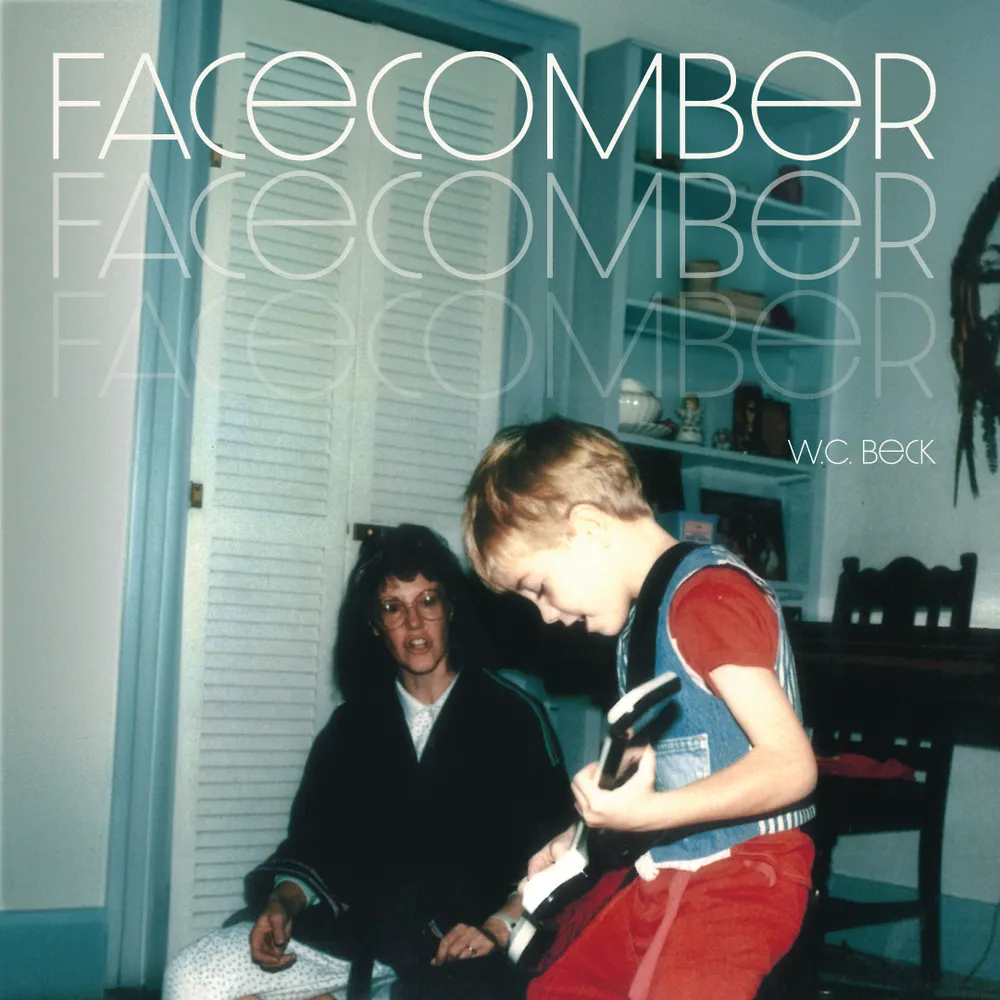There’s something almost poetic about Aeons landing in a world that feels like it’s collapsing and rebooting every other week. Esprit D’Air; the eternally DIY, never-quiet, never-dead metal project has always sounded like it was forged in the middle of an existential crisis, but this time, the crisis feels mutual. Where Oceans (2022) and Seasons (2024) explored emotional turbulence through grand cinematic scope, Aeons is the turbulence; a dense, defiant, melodic storm of a record that doesn’t just reflect chaos but thrives in it. It’s not an album you simply listen to; it’s one that drags you through the clockwork of time, shows you every rusted gear, and dares you to come out the other side still believing in progress.
From the first seconds, Aeons makes it painfully clear this isn’t your average modern metal release. It doesn’t posture. It doesn’t chase trends. It declares war on them. Esprit D’Air have outgrown their old labels; J-rock, metalcore, visual kei, whatever the algorithm calls it now and built something bigger, something stranger. Entirely written and self-produced by the band, Aeons blends progressive metal’s precision, post-rock’s vastness, and electronic intensity into a sound that’s mechanical and human in equal measure. Where other bands polish their rough edges to death, Esprit D’Air leaves the scars visible. You can hear the sweat, the anxiety, the sheer willpower keeping this whole thing upright and it’s glorious.

This is also the first Esprit D’Air album that’s truly theirs. Gone are the guest features from industry heavyweights like Ben Christo and Tim “Ripper” Owens; gone is the sense of compromise. Aeons is the sound of total creative control, and it pays off. The record is huge. Not in a bloated “we’ve discovered Dolby Atmos” way, but in the sense that every element feels precisely placed and emotionally deliberate. It’s heavier, sharper, and more personal than anything they’ve done before.
Sonically, Aeons is staggering. Kai’s production strikes that impossible balance between precision and chaos; clean enough to breathe, messy enough to feel real. The guitars bite and shimmer; the synths float like ghosts; and the vocals, equal parts clarity and desperation, cut straight through the noise. Nothing about it feels accidental, but nothing feels sterile either. It’s what happens when perfectionism collides with passion and refuses to compromise.
Lyrically, Aeons obsesses over time; not as a poetic metaphor, but as an active antagonist. Every song feels like a confrontation with entropy. Stardust, the emotional core of the record, is where this theme crystallizes. It’s slow, glacial, and devastatingly beautiful; electronic textures bleeding into sweeping guitar harmonies, creating a feeling of being suspended in a loop you can’t escape. It’s a rare kind of existential dread: not loud, not violent, but deeply human.
The opening track feels like a descent into the machine: a cold, digital heartbeat that gradually unravels into Kai’s soaring vocals and needlepoint guitar work. His voice carries that paradox he’s mastered; weary yet unbroken, like someone staring down time itself and daring it to move faster. The follow-up, Chronos, already a fan favorite, hits even harder in context. It’s rhythmically complex, with riffs that stutter and pulse like clock gears grinding together. It’s precise but cinematic, all urgency and inevitability; the sound of progress when you’re not sure progress is worth it anymore.
Then there’s Silver Leaf, where the storm pauses just long enough to show you the wreckage. It’s a masterclass in emotional duality; aggression wrapped in melancholy, beauty bruised by distortion. Every note seems to ache under the weight of its own beauty, and Kai’s production ties it all together with unsettling control. There’s no filler here; every shimmer of synth and low-end growl of Takeshi’s bass feels intentional, almost surgical.
Midway through, Lost Horizon and Broken Mirror push things further into chaos. The Deftones and Spiritbox comparisons are obvious; those shimmering harmonics, that sense of drowning in sound, but Esprit D’Air use those influences as tools, not crutches. These tracks sound like the walls of time cracking open: industrial percussion colliding with atmospheric guitar lines, metallic yet dreamlike. Even when the riffs get punishing, Kai never loses sight of melody. That’s Esprit D’Air’s secret weapon; they’re heavy, yes, but they’re also heartbreakingly tuneful.
By the time you reach 絶望の光 and Like a Phoenix, you can feel the light breaking through the static. The tone lifts; the melodies expand; Kai’s vocals sound more defiant than defeated. This isn’t the triumphant “we made it” kind of survival; it’s the quieter, more honest one. The kind where simply continuing to exist counts as victory.
Even the final stretch refuses to coast. One of the closing songs plays like a sigh after an hour of tension; fragile, fading, but sincere. And then 羽ばたけ arrives, blending folk-rock warmth into Esprit D’Air’s futuristic palette. It shouldn’t work, but it does. It feels like morning after an endless night; not triumphant, but resolute. The sound of a world still spinning, even if it shouldn’t.
In the end, Aeons isn’t just Esprit D’Air’s most accomplished album; it’s their manifesto. It’s about surviving time, resisting collapse, and finding meaning in persistence. It’s not optimistic, but it’s honest. And in a world this uncertain, that honesty feels revolutionary.
This isn’t nostalgia for what metal used to be; it’s a challenge to what it’s become. Aeons don’t want to comfort you; it wants to wake you up. And for a band that’s built an empire from independence and sheer willpower, that’s exactly what makes it matter.
Follow Esprit D'Air
About the Author

A tenured media critic known working as a ghost writer, freelance critic for various publications around the world, the former lead writer of review blogspace Atop The Treehouse and content creator for Manila Bulletin.










